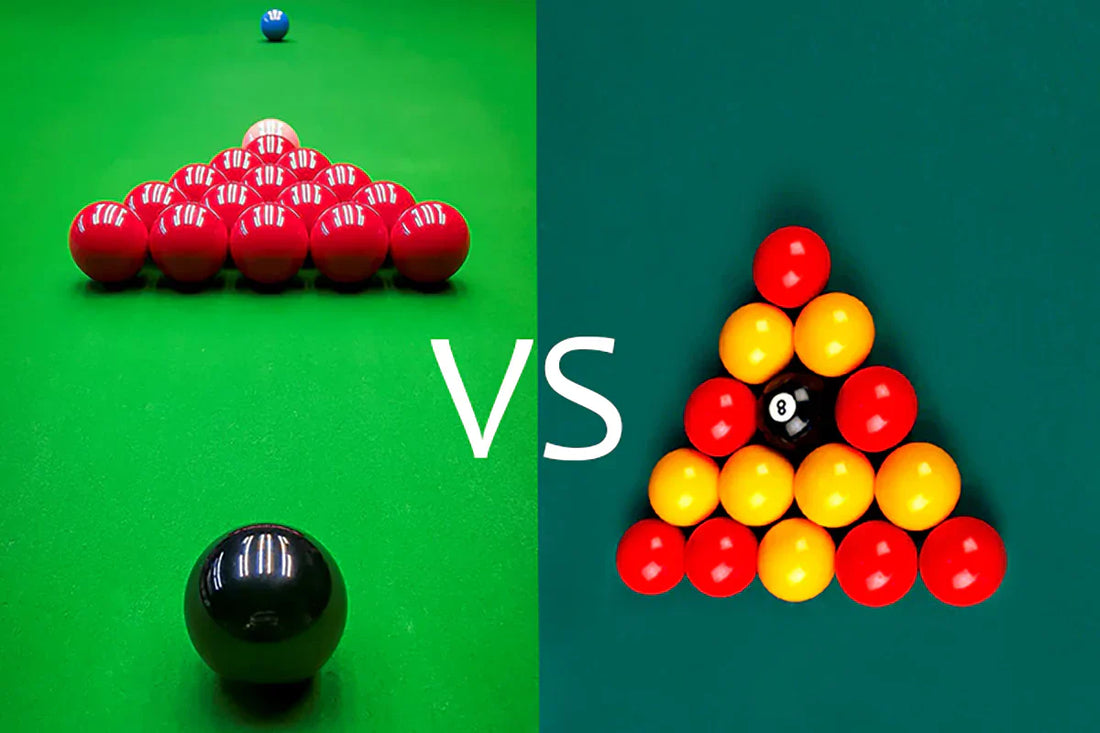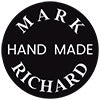
What's the Difference Between Snooker and Pool?
Right, let’s cut the jargon and get stuck in. If you’re serious about dominating the pool table in Britain, you need to know the real nitty-gritty between pool cues and snooker sticks. From the tip that kisses the ball to the weight that feels like an extension of your arm, we’re spilling the beans on why choosing the right tool matters.

Why the Right Cue Matters in UK Billiards
Whether you’re sinking pints between shots in the pub or chasing a century break at the snooker club, your cue is your best mate. But here’s the kicker: what works for a rowdy 8-ball frame in the local boozer might let you down on a 12-foot snooker table. Let’s break it down so you can pick the weapon that suits your game.
What Are English Pool Cues?
An English pool cue is specifically crafted for games like blackball and 8-ball – both immensely popular in UK pubs and leagues. These cues are optimised for quick positional shots, nimble cue ball control, and effective breaks on smaller 6ft/7ft tables (183-213cm length) with tight 3.5-inch pockets – a hallmark of British pool tables.
Key Specs for English Pool Cues:
• Length: Typically shorter, averaging around 48-57 inches (123-145 cm).
• Weight: 18–20 oz (offers stability and cue ball punch).
• Tip Size: 8–9mm (precision for smaller balls).
• Materials: Ash or maple shafts with hardwood butts (like rosewood or zebrawood).
• Ferrule: Brass or fibre – absorbs shock so your cue doesn’t feel like a jackhammer.
• Joint Style: Commonly 2-piece or ¾-joint construction with quick-release joints for portability.
• Best For: Pub leagues, blackball tournaments, and anyone who likes their pool fast and furious.
What Are Snooker Cues?
A snooker cue is engineered for use on 12-foot snooker tables and is suited to the game’s emphasis on strategy, cue ball control, and precision positional play. These cues are longer, often sleeker, and more front-balanced to help players apply accurate spin and delicate touch.
Key Specs for Snooker Cues:
• Length: Generally longer, often 57-59 inches (145-150 cm) but can vary.
• Weight: 17–21 oz (for delicate shots).
• Tip Size: 9–10mm (to execute accurate spin and fine positional play.).
• Materials: Commonly made from ash (popular in the UK for its visible grain and rigidity) or maple for a smoother finish.
• Ferrule: Brass or alloy – crisp, solid contact. No messing about.
• Construction: One-piece or 3/4-joint. Extensions available for the truly ambitious.
• Best For: Competitive snooker, building breaks, and making your opponent weep with envy.
English Pool Rules vs. Snooker Rules
English Pool Rules: ( Fouls mean two shots to your opponent – brutal )
• Games include blackball and 8-ball.
• Played with 15 object balls and a cue ball. (57 mm diameter)
• Players must pot all their designated groups (reds/yellows) before potting the black.
• Fouls grant the opponent two shots or ball in hand.
• Shorter frames; ideal for casual or pub competition.
• Table size: 3.5 x 7 ft (107 x 213 cm) to 4.5 x 9 ft (137 x 274 cm).

Snooker Rules: ( Points matter, and so does every inch of your cue )
• Played with 21 object balls and one cue ball. (52.5 mm diameter)
• Red balls must be alternated with colours.
• Each colour has a set point value (red = 1, black = 7).
• Frames often take longer due to tactical safety play.
• Matches are won by taking the majority of frames—e.g. best of 19.
• Table size: 12 × 6 ft (365.8 cm × 182.9 cm) and might be smaller.
Head-to-Head: English Pool Cues vs. Snooker Cues
| Feature | English Pool Cues | Snooker Cues |
|---|---|---|
| Tip Size | 8–9 mm (tight control) |
9–10 mm (greater spin potential) |
| Weight | 18–20 oz (balanced power) |
17–21 oz (finesse and control) |
| Length | 48"–57" (shorter reach) |
57"–59" (longer for full-table play) |
| Balance | Evenly weighted | Slight front weight (for cue ball touch) |
| Ferrule Material | Fiber/Brass (shock absorption) |
Brass/Alloy (firm, responsive hits) |
Why You Can’t Swap Them (And Why Pros Never Do)
Imagine trying to swat a fly with a sledgehammer, or carve a turkey with a butter knife. Using the wrong cue feels the same.
- Pool with a Snooker Cue: It will reduce the cue ball impact, affecting your break and positional play.
- Snooker with a Pool Cue: You might find it too short and poorly balanced for long pots or safety shots.
- Casual Play vs. Pro Play: Beginners might interchange cues for fun, but serious UK players invest in sport-specific tools.
Picking Your Perfect Partner: A UK Player’s Guide
- Playing Style – Spin artist? Snooker cue. Power hitter? Pool’s your jam.
- Venue – Pub warrior? Pool cue. Snooker hall regular? Splurge on a proper snooker stick.
- Customisation – British cue-makers can build you a bespoke beauty – engraved name, personalised weight, the lot.
FAQs: What UK Players Really Want to Know
Q: Are snooker cues more expensive than English pool cues?
A: Not always. Cue pricing depends more on materials and craftsmanship than type. A premium ash pool cue could cost the same as a mid-range snooker cue.
Q: How do I maintain my cue in the UK’s damp climate?
- Store it in a sturdy hard case to prevent moisture damage.
- Wipe down the shaft with a microfibre cloth regularly.
- Use reliable chalk to maintain grip on more humid days.
Q: Can I customise my cue for better grip?
A: Yes! Cue makers offer bespoke options—adjust weight, tip hardness, or add a personalised inlay for a cue that suits your playing style.
Q: What accessories are essential?
A: Chalk (Triangle or Taom), cue cases, tip scuffers, extensions, cue towels, and joint protectors are all useful for keeping your cue in top form.
Final Word: Let Your Cue Do the Talking
From casual pub pool to high-level snooker tournaments, your cue isn’t just a stick—it’s your style, your power, your precision. Pick wisely, play hard, and may your next shot be a crackpot.
Whether you’re a pub lion or a snooker shark, the right cue turns good players into legends. Now get out there and make those balls sing.
